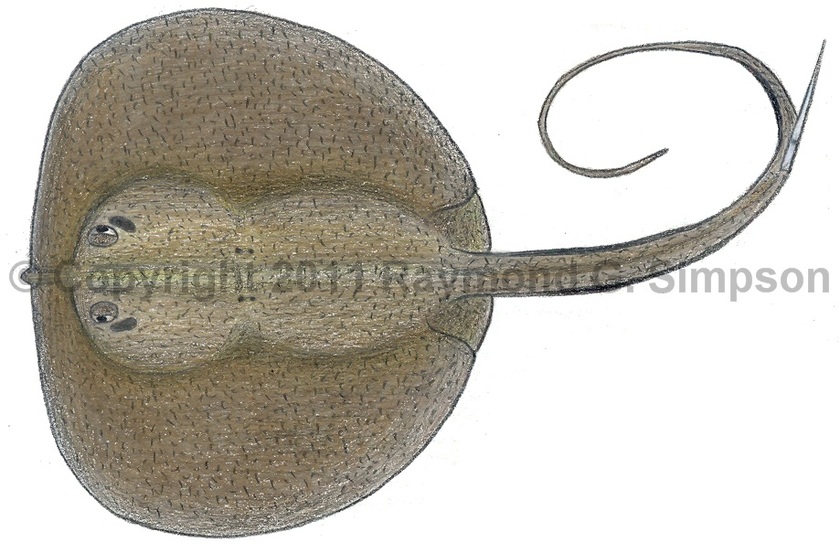
Common Name
Chupare Stingray
Year Described
Werner, 1904
Identification
Disk almost perfectly rounded with a straight to convex frontal profile. Pectoral edges rounded. Snout equal or slightly shorter than interspiracular width. Eye small. Tail whip-like with a single spine located more than halfway down tail. Tail with lateral ridges. Dorsal finfold absent to vestigial. Ventral finfold weak and located posterior to spine. Body rough with denticles but no obvious rows or enlarged thorns.
Color
Dorsal surface of disk uniformly dark brown, yellowish brown, or dark gray. Ventrum pale white or yellowish.
Size
Maximum size to 120cm DW.
Habitat
Found in shallow coastal waters (<25m) near seagrass beds, mangrove lagoons, and sandy bottoms.
Range
S. Gulf of Mexico to French Guiana, including the Caribbean islands.
References
Last, P. R., Naylor, G. J. P., & Manjaji-Matsumoto, B. M. 2016a. A revised classification of the family Dasyatidae (Chondrichthyes: Myliobatiformes) based on new morphological and molecular insights. Zootaxa, 4139 (3): 345-368.
Last, P.R., White, W.T., Carvalho, M.R. de, Séret, B., Stehmann, M.F.W & Naylor, G.J.P (Eds.). 2016b. Rays of the World. CSIRO Publishing, Melbourne.
Other Notes
This species is well divergent from typical Himantura and all other members of Dasyatidae, and is basal to the clade of freshwater stingrays (Potamotrygonidae) (Last et al., 2016).